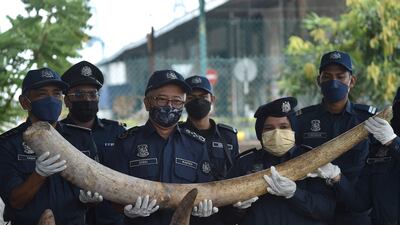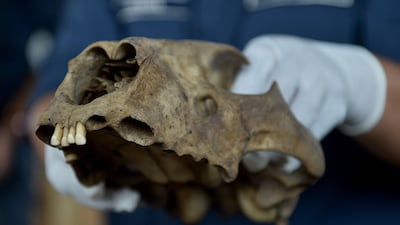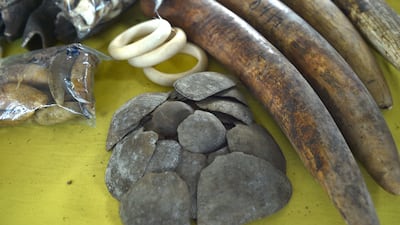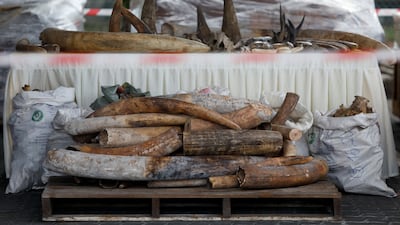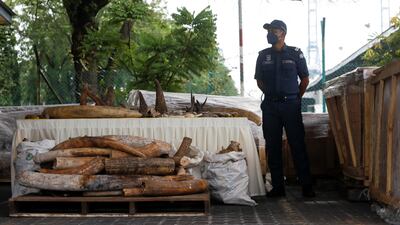Panamanian authorities iare trying to raise awareness about the dangers to humans and wildlife of keeping wild animals in their homes.
This month, Panama hosted the World Wildlife Conference, where participants voted to tighten restrictions on the international trade in animals and plants.
Black-handed spider monkeys are listed in the most endangered category of international species, and Panama's Ministry of Environment says they are in “critical danger".
Trade in the monkeys is permitted only in exceptional circumstances.
“People don’t understand they can’t buy a wild animal from someone who doesn’t have authorisation to sell it,” said Felipe Cruz, the ministry’s adviser on environmental crimes.
“The environment can’t take any more. We’re at a critical point.”
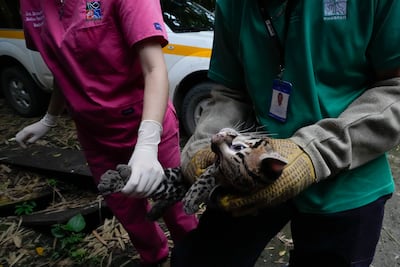
In the first nine months of the year, Panama’s Attorney General’s Office recorded 19 cases of wild species trafficking and 14 cases of extraction of species that were protected or in danger of extinction.
Shirley Binder, an adviser to the Environment Ministry, said the real extent of the problem could be greater.
“The country is big. There could be cases that we don’t have,” Ms Binder said.
“We have formed strategic alliances with security sectors that now are conscious of the environmental issue, … but we also need the support of citizens generally so that when they see these cases they report them.”
The government introduced a catalogue with photographs and technical details to assist in identifying the most commonly trafficked species.
Panamanian law strictly limits the possession of wildlife.
The Environment Ministry issues permits to zoos, breeding centres or for the raising and consumption of some sources of protein such as deer and iguana, but not for endangered species.
Spider monkeys are among the most popular wild pets, said Erick Nunez, the Environment Ministry’s chief of national biodiversity.
Primates can adapt relatively well to living in with humans, making their rehabilitation especially challenging, Mr Nunez said.
The new government rehabilitation centre, which was built on land adjacent to former US military bases, began receiving animals during the Covid-19 pandemic.
Animals come and go, but it holds up to 50 and there are plans to expand.
Primates such as spider monkeys are among the most frequent arrivals, but the centre also receives cat species such as ocelots and jaguarundi, and birds including toucans and owls.
They will only be reintroduced to the wild after thorough evaluation by the centre’s biologists and specialists from non-government organisations.
The monkeys will need to show that they can find their food and recognise other members of their species.
Mr Nunez said people still see monkeys as making good pets, an attitude he said was “unjust and inappropriate".















